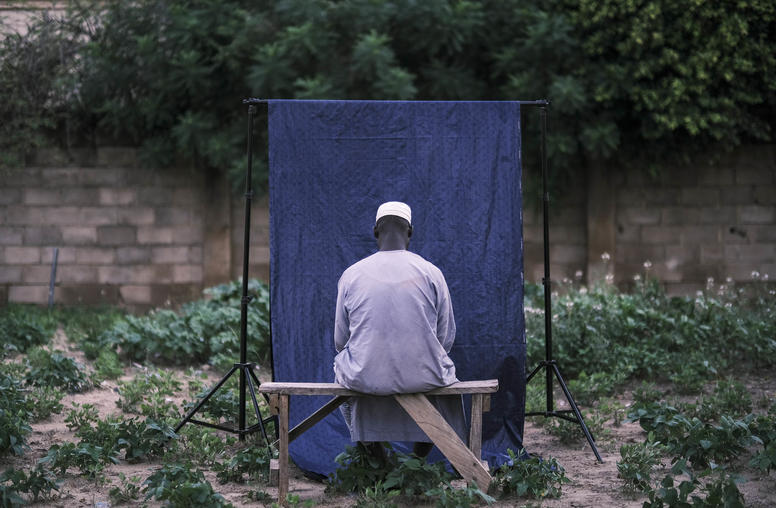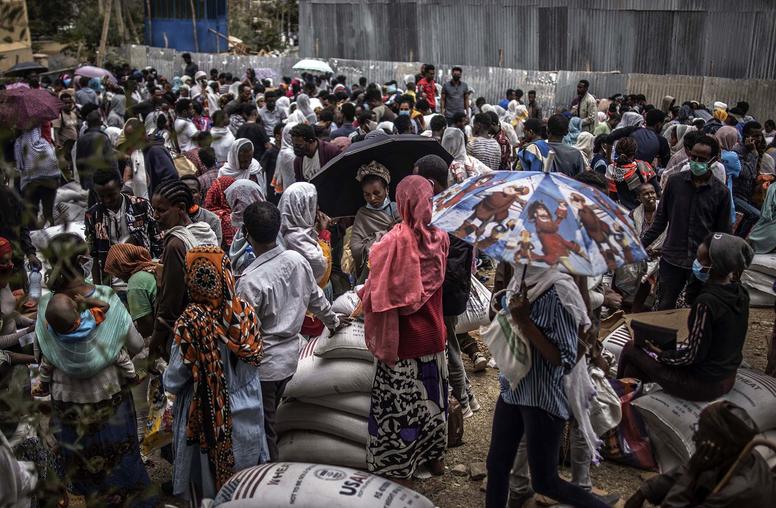Publications
Articles, publications, books, tools and multimedia features from the U.S. Institute of Peace provide the latest news, analysis, research findings, practitioner guides and reports, all related to the conflict zones and issues that are at the center of the Institute’s work to prevent and reduce violent conflict.

Thomas Sheehy on Vice President Kamala Harris’ Visit to Africa
Vice President Kamala Harris’ trip to Ghana, Zambia and Tanzania is further indication that “the U.S. is finally waking up” to opportunities in Africa, says USIP’s Thomas Sheehy. “Africans want choices, they don’t want to be dependent just on Chinese investment … they want the U.S. engaged.”

Susan Stigant on the U.S. Response to the Fighting in Sudan
As the Sudanese military and Rapid Support Forces continue fighting, the United States needs to avoid getting “caught in the trap that we’re trying to choose one [side] over the other. At the end of the day, there’s a third voice here, and that’s civilians and the Sudanese people,” says USIP’s Susan Stigant.

Disengaging and Reintegrating Violent Extremists in Conflict Zones
Dealing with people who leave violent extremist groups has become one of the most pressing security issues of our time. Drawing on new primary research conducted by the author in Iraq, Syria, and Nigeria, and existing research on disengagement and reintegration, this report underscores the challenges of administering rehabilitation programs in conditions of chronic insecurity—and of doing so at a scale sufficient to make a difference to hundreds or even thousands of people in short order.

Sameer Lalwani on the G20 Summit
At the G20 summit, the United States should focus on engaging with the Global South. “A lot of these countries are worried about bread-and-butter issues,” says USIP’s Sameer Lalwani. “In the absence of U.S. leadership at an institutional level … there’s going to be other actors that fill that vacuum.”

Donna Charles on Ghana’s Democracy Amid West Africa’s Instability
Ghana represents a “bastion of democracy” in a region beset by political instability. With Ghanaian President Nana Akufo-Addo visiting Washington, D.C., this week, the United States can deepen cooperation in a way that “really supports the U.S. message of bringing peace through democracy,” says USIP’s Donna Charles.

Henry Tugendhat on the Geopolitical Impact of BRICS Expansion
The expansion of BRICS is a significant step in the bloc’s push to counterbalance the Western-led international order. But as a consensus-based group, “the question remains to what extent will they agree on what [that] alternative world order might look like,” says USIP’s Henry Tugendhat.

Susan Stigant on Sudan’s Latest Peace Agreement
Sudan’s transitional government has signed a peace agreement to end a number of long-standing conflicts and civil wars. USIP’s Susan Stigant says this is a positive sign for democratic progress, as “one of the promises of the revolution was to seek peace,” but cautioned that the real “work only begins once the ink is on the paper.”

Susan Stigant on Ethiopia’s Escalating Civil Conflict
As rising violence in Ethiopia threatens to pull neighboring Eritrea into the fray, USIP’s Susan Stigant says, “There is a real need for some external, independent investigator to help diffuse some of that escalation” and look into disturbing reports of human rights violations stemming from the conflict.

The Unfolding Conflict in Ethiopia
Susan Stigant, director of Africa Programs at the U.S. Institute of Peace, testified on December 3, 2020 at the House Foreign Affairs Subcommittee on Africa, Global Health, Global Human Rights and International Organization's hearing on “The Unfolding Conflict in Ethiopia.” Her expert testimony as prepared is presented below.

Five Steps to Sustain a Cease-Fire in Northern Ethiopia
After months of war and amid an intensifying humanitarian crisis in Ethiopia’s northern region of Tigray, the Ethiopian government unilaterally declared a “humanitarian cease-fire” on June 28. If Ethiopia wants this truce to end the war it needs to persuade Tigrayan forces, which have so far vowed to keep fighting, to agree to a deal. As a prelude to wider negotiations, the odds of ending the conflict would improve if confidence building measures are urgently undertaken and five key areas of a truce expanded. U.S. and international partners can promote these steps while recognizing that Ethiopians must own any cease-fire process.